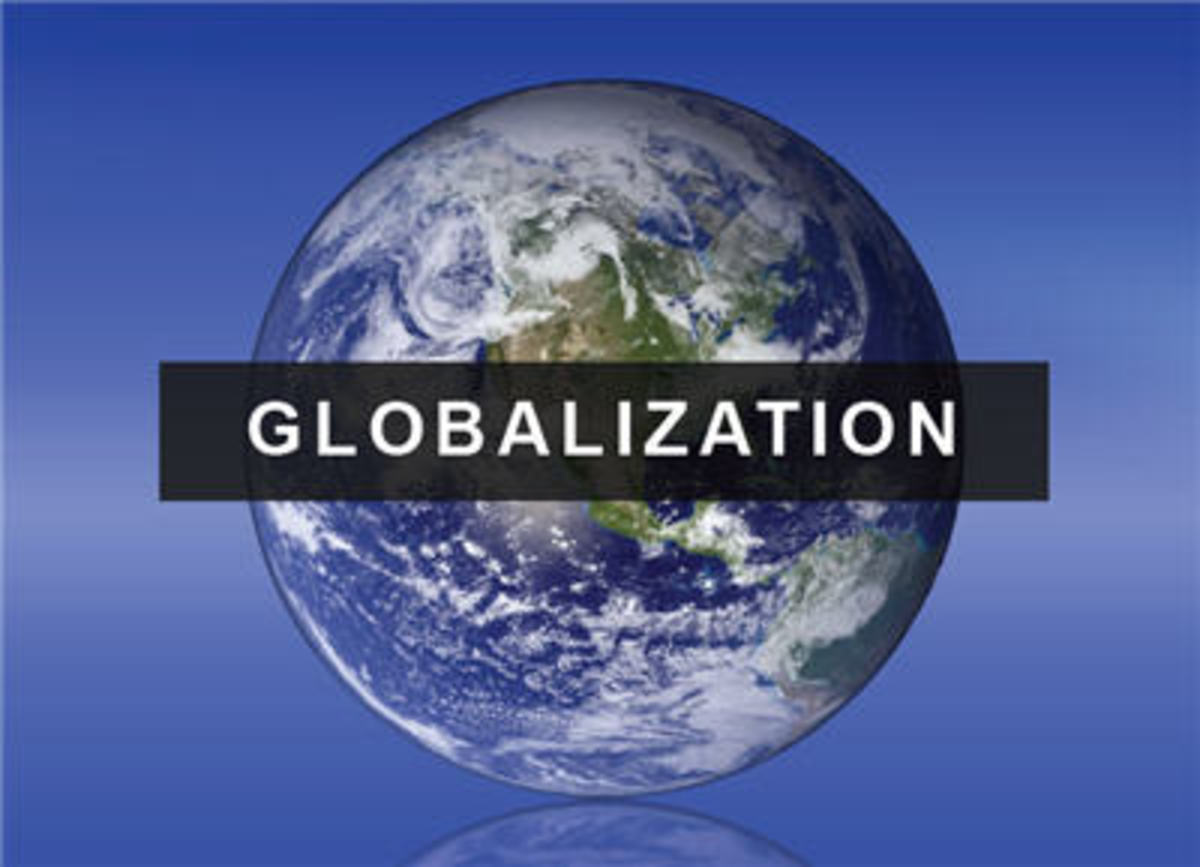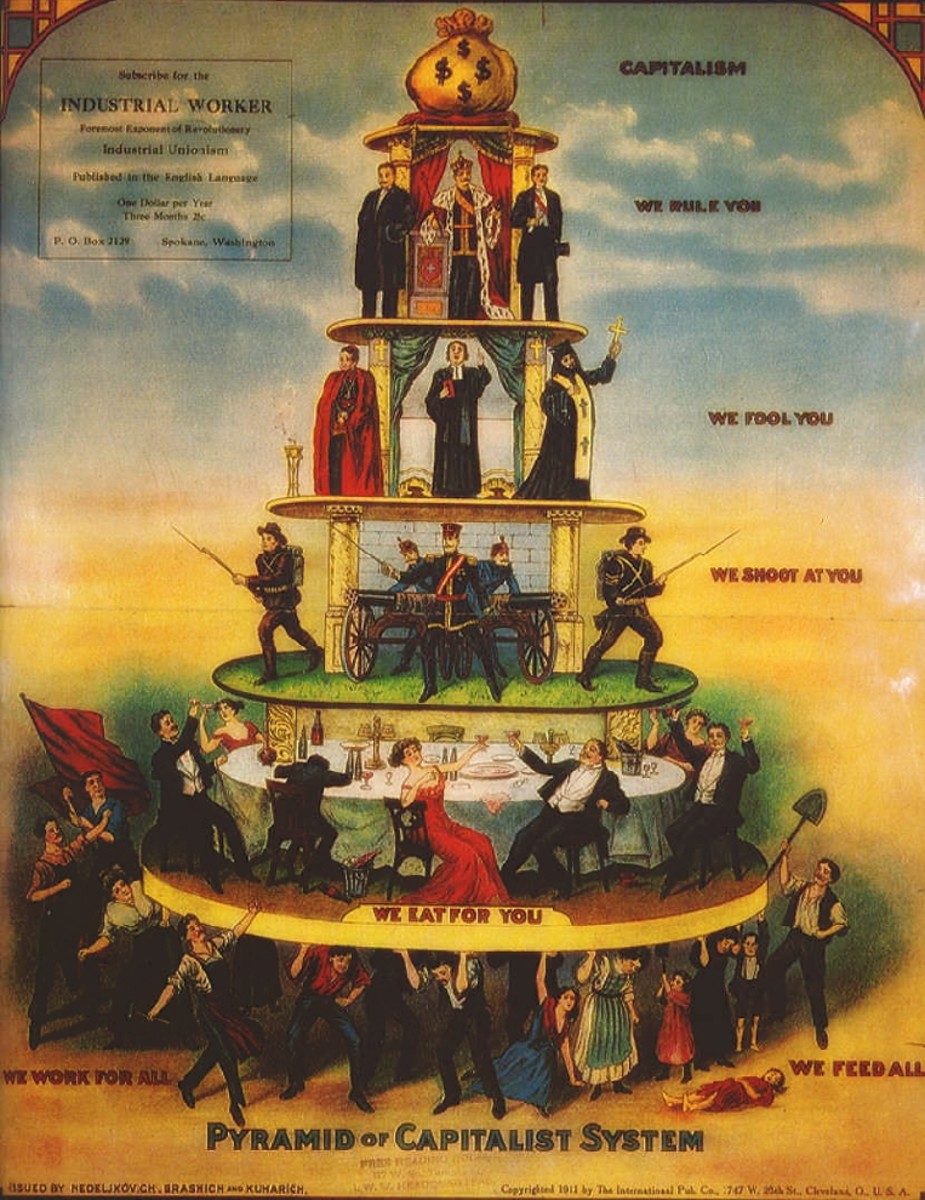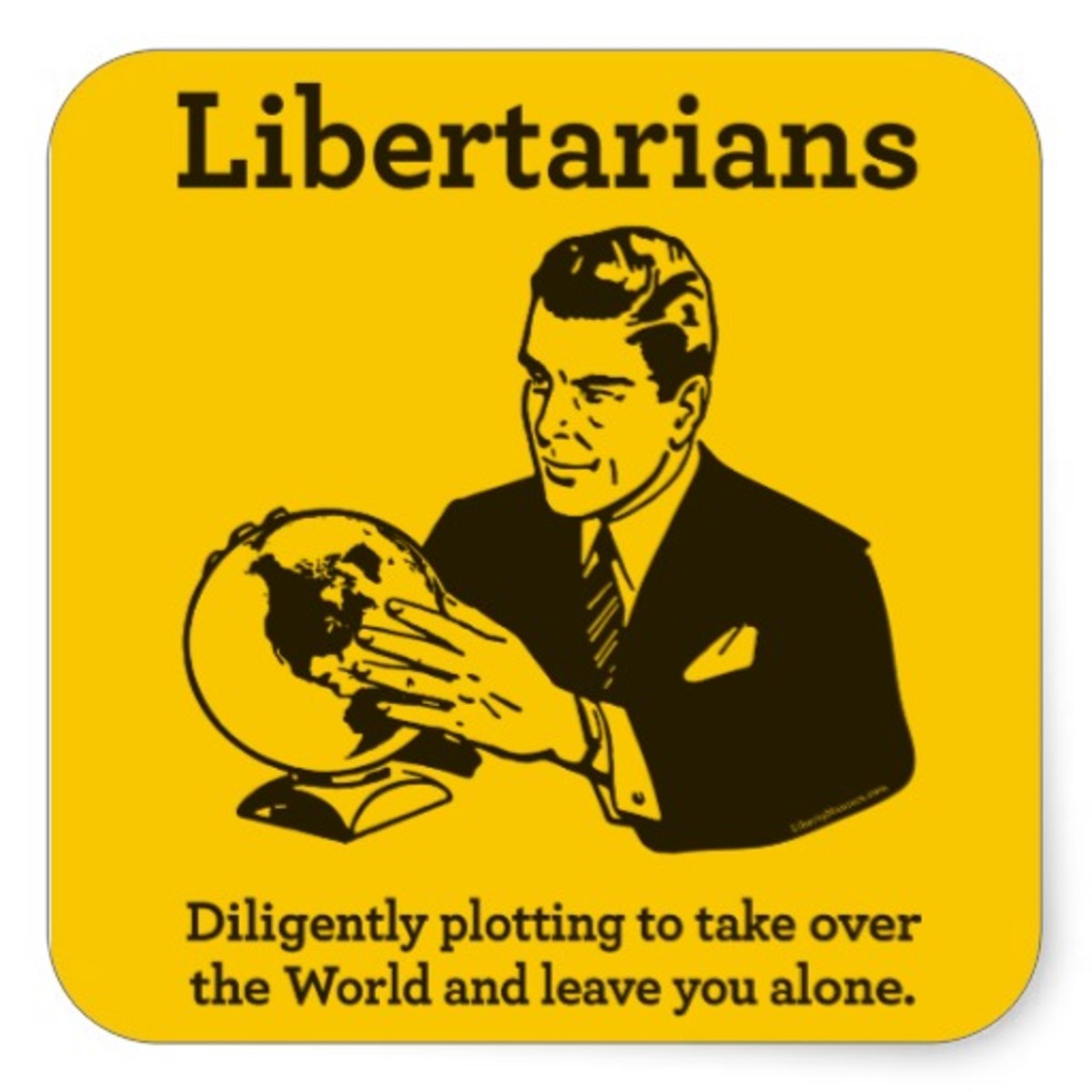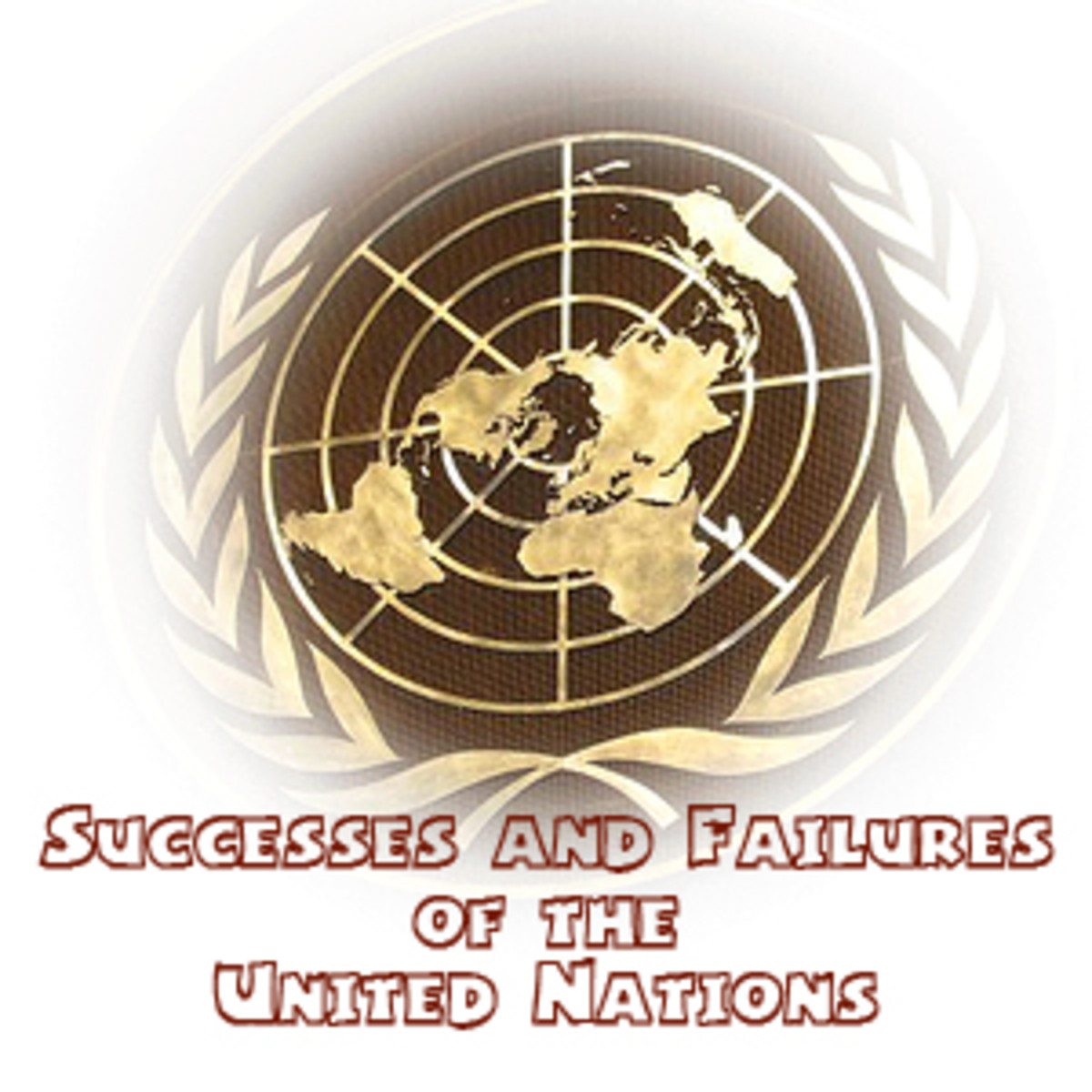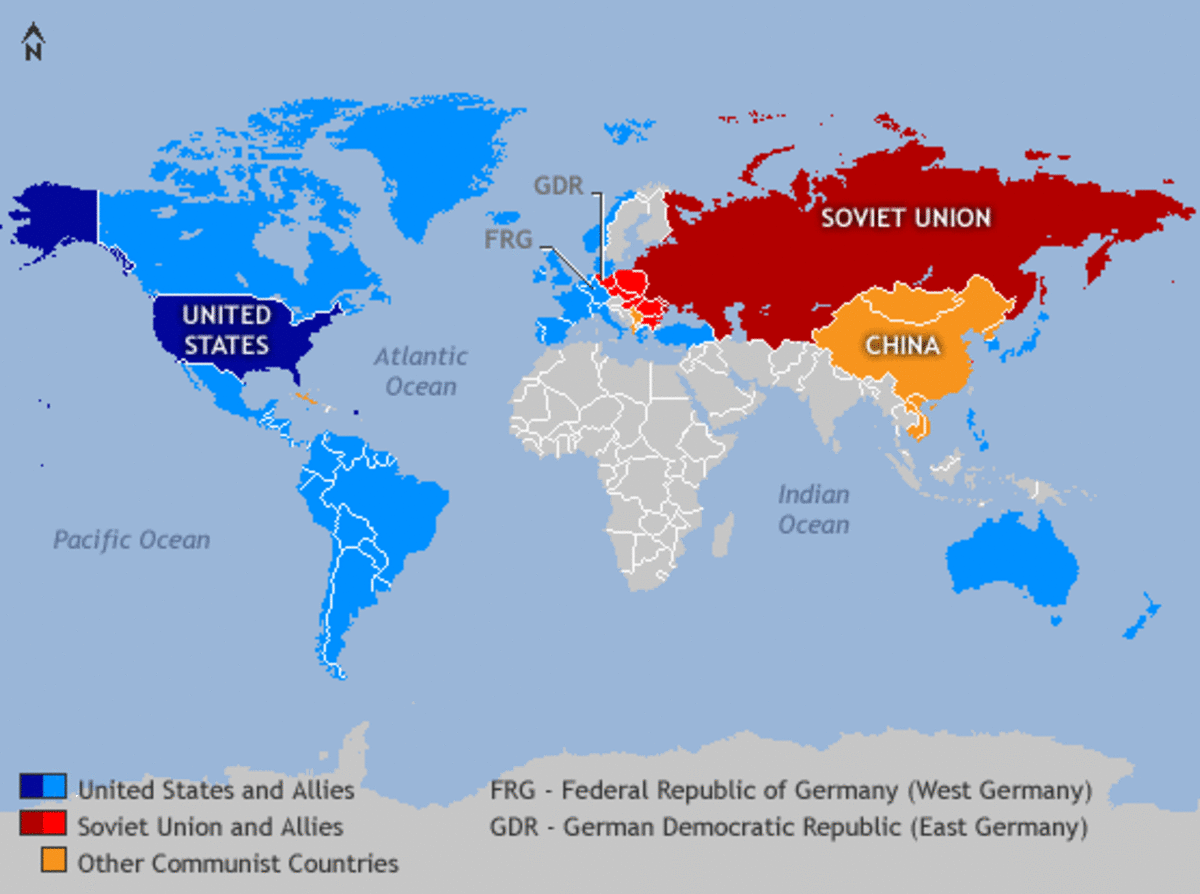McDonald's Theories of International Politics
Logo in use since 1968
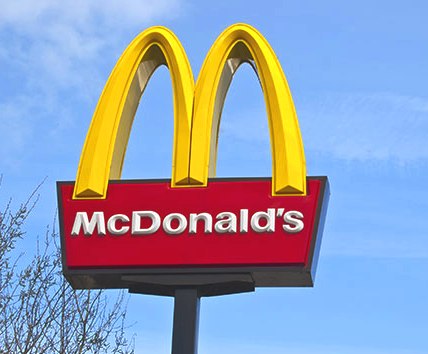
The New Rulers of the World
To begin with, we are not just talking about a fast food chain that'll sell you a cheap and simple meal that'll get lodged in your digestive system. This is a corporate superpower, it is the Roman Empire of the business world and the statistics illustrate their dominance perfectly. They have over 35,000 outlets in the overwhelming majority of sovereign states (between 110-120 countries). The company employs approximately 2 million people either directly or indirectly and is valued by the New York Stock Exchange at over $86 Billion. McDonalds, like many multi-national corporations are wealthier than the majority of African states.
Biggest McDonald's (2012 Olympics)

In the language of globalization
In the humanities and social sciences disciplines, McDonald's has recently found its place in the dictionaries. First came George Ritzer's 1993 thesis titled 'The McDonaldization of Society'. Later that same decade, multiple Pulitzer Prize winning author Thomas Friedman released 'The Lexus and the Olive Tree', where he coined the 'Golden Arches Theory of Conflict Prevention' among other imaginative theoretical interpretations. Before their name appeared in great works of political science, The Economist magazine developed a new indicator for comparing the purchasing power parity of two different currencies; 'The Big Mac Index'.
McDonaldization
The term McDonaldization refers to a Neo-Weberian interpretation of social and cultural paradigm shifts in close correspondence with and as a direct result of the economic success of the fast food restaurant's business model, i.e homogenized practices, bureaucracies and hard-line economic viability mechanisms. It is clear to us when we see McDonald's feature prominently in almost any populated area. So many brand names now dominate our towns and cities to the point where they're being sapped of their uniqueness and identity, hence the play on words with 'Globalization'. Ritzer argues that Max Weber's conviction in the drive towards rationality is being undone owing to the irrational standards that are increasingly infiltrating societies. McDonald's runs exclusively for monetary profit but they fail to consider environmental, ecological, ethical (etc) impacts of their actions. This is not just unsustainable but also irrational and contradicts the belief in humanity's linear drive towards maturity.
The Golden Arches Theory of Conflict Prevention
Thomas Friedman didn't dwell on this abstract theory alone throughout the entire book but nevertheless was particularly keen to emphasis that it does have a great deal of validity. It's very straightforward; no two countries that both have McDonald's restaurants have ever gone to war. With the exception of the US invasion of Panama in 1989, at the time of writing the book, Thomas Friedman's theory was accurate. Furthermore, one symbolic moment which signaled the end of the Cold War was the highly publicized opening of the Soviet Union's first McDonald's in 1990. The construction of this purely American enterprise on Russian soil was the manifestation of a piece of American culture in the heartland the adversary power.
In more recent years however, the theory's legitimacy has been diminished and critics point out that governments, paramilitary forces and insurgents do not act in accordance with this static viewpoint. There is a correlation but by few or no means at all is there a causation. It is more likely that other factors influence the outbreak of war or the preservation of peace. Friedman's theory is moreover asserting the stabilizing forces behind globalization, economic maturity and integration. McDonald's is representative of those characteristics but is not the entirety. Like most multi-national businesses, they cannot function in a hostile and unstable environment and will consequently monitor a state's well-being before setting up shop. Successful business economics depends on stability but there have been stable turned chaotic countries with McDonald's restaurants such as Egypt and Ukraine, and in the aftermath of Iran's revolution, the company had to withdraw. On the other hand, McDonald's does not concern itself with a state's human rights record or whether or not that state is democratic or authoritarian (the fast-food giant has functioned for three decades in Saudi Arabia).
Russian Style Big Mac
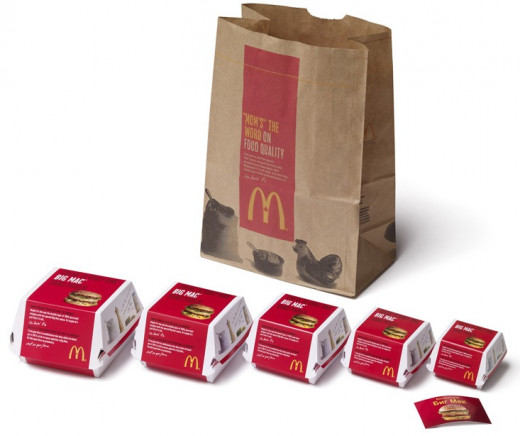
The Big Mac Index
All the information on this measurement can be found in the link below. The Economist developed this during the mid 1980s around the time McDonald's were expanding rapidly into international markets. The index is a comparison of the relative purchasing power of two currencies using the price of a Big Mac in each country to (somewhat) accurately identify the correct valuation of the two currencies.
For example: US Big Mac = $4.80. China Big Mac = 16.90 Yuan or $2.73.
The Chinese Big Mac is 43% than the American one, but because the product is the same in both countries, this implies that the Yuan is undervalued against the dollar.
16.90 divided by 4.80 = 3.52. If purchasing power was equalized worldwide, the 1 USD would be equivalent to 3.52. However, the market exchange rate is approximately 1:6.22 (December 2014).
The index is also illustrating the imbalances in the level of economic prosperity between countries and the polarized cost of living between the different regions. McDonald's willingly consider a venture to a particular country as soon as they believe that there will be a strong customer base with a sufficient level of income to greet them when they arrive. Unsurprisingly the country's with the highest relative cost of living often have the most expensive Big Macs too.
The most expensive Big Mac is in Norway, costing 48 Kroner or $7.76.
The cheapest Big Mac is in India, costing 105 Rupees or $1.75.
Interesting McFact
The first Russian McDonald's which opened in 1990 served more customers on its first day than any other store before, or since. McDonald's negotiated for fourteen years to bring themselves into the Soviet Union and it seemed politically appropriate that the Americans eventually succeeded as the relations were greatly improving.
Thomas Friedman
McDonald's Global Operations
- Discover McDonald's Around the Globe :: AboutMcDonalds.com
A snapshot of the restaurant's global presence and some statistics.
Economist BMI
- Interactive currency-comparison tool: The Big Mac index | The Economist
The Big Mac Index: Global exchange rates, to go.


